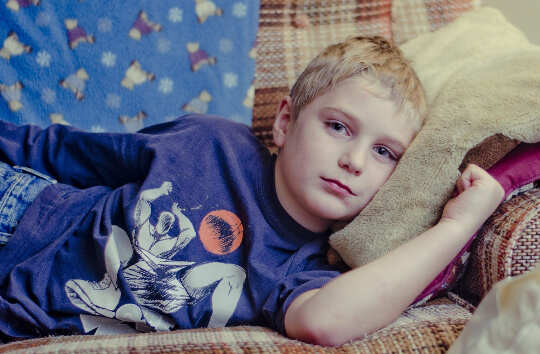
We're programmed to have unrealistic expectations from movies and TV, from romance stories promising wonderful experiences with people who anticipate our every wish. We want someone to be always caring, always considerate, always loveable, always giving. But these romantic illusions too often leave us feeling cheated...

Workers who communicate with their colleagues mainly through videoconferencing are far less effective at building relationships than when the communication is done face to face
- By Nikki Martyn
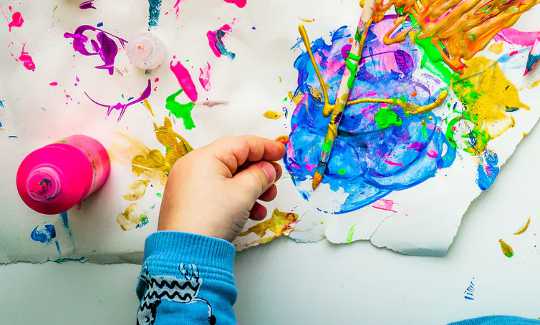
The COVID-19 pandemic has affected children’s worlds in many ways. Due to closures and restrictions, they have experienced the loss of social engagement and the support of friends, school communitiesor extended family.

It could be argued artificial intelligence (AI) is already the indispensable tool of the 21st century. From helping doctors diagnose and treat patients to rapidly advancing new drug discoveries, it’s our trusted partner in so many ways.

Researchers have created a way to look into the brains of two people simultaneously while they’re talking. What they found will not surprise anyone who has found themselves arguing about politics or social issues.
- By Karl Bates

In a new study, researchers found people who had higher levels of self-control as children were aging more slowly than their peers at age 45.
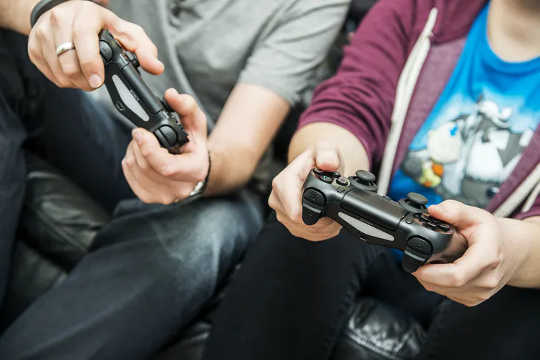
As the pandemic forced many Americans to hunker down at home, the video game industry saw record spending and profits in 2020. Interacting with other people through gaming became, for some players, essential for social connection.

Honesty is a skill that can be practiced and learned. I feel a deep sadness when I hear people tell me how much they have been hurt in their dating relationships and how this has caused them to approach each new relationship with fear or to give up on relationships altogether.
- By Ajay Heble

There is no doubt that we live in challenging times. But challenges can also lead to opportunities and lessons about how we might live our lives differently.

It seems the once taboo subject of group sex is finally entering the mainstream. One of the reasons for this is the prevalence of organised sex party networks. These networks were formed to provide a space for like-minded people to meet in a secure environment to engage in ...

The way we communicate quickly pivoted to Zoom meetings, remote learning and messaging on social media. And in the absence of face-to-face interactions, people quickly became more reliant on emojis to help express their thoughts and feelings to an audience they can no longer see in person.
- By Katie Bohn

A preschool enrichment program that helps boost social and emotional skills pays off during middle and high school, according to a new study.

There is a new "breed" of humans among us and they are here to usher in the new age of peace. These powerful and intuitive people have little tolerance for dishonesty. They are on Earth so that they can teach others about the importance of speaking truthfully and living in harmony.
- By Lilou Macé

I first heard about yoni eggs in Thailand, several years ago. I was immediately intrigued by this small, oval, polished stone and wanted to learn more about it and test it. I was excited to discover a “women’s secret” that would allow me to free my female energy, reveal my inner beauty, and restore my self-confidence.
- By Osho

The world tries to mold every person into a commodity: useful, efficient, obedient - never rebellious, never asserting itself, never declaring its own individuality, but always being subservient, almost like a robot.

The new year is going to be better. It has to be better. Maybe you’re one of the 74% of Americans in one survey who said they planned on hitting the reset button on Jan. 1 and resolving to improve.
- By Isang Awah

A love for reading can be hugely valuable for children. The benefits of leisure reading include increased general knowledge, a positive impact on academic achievement, enhanced reading ability and vocabulary growth.

Georgette Heyer kept only one fan letter. It was from a Romanian political prisoner who had raised her cell-mates’ spirits over a 12-year incarceration by retelling the story of Heyer’s Friday’s Child.
- By Pate McCuien
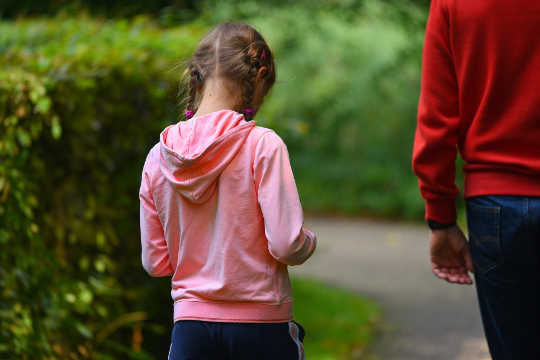
Fathers often feel uncomfortable discussing body image and health with their daughters, a study indicates.
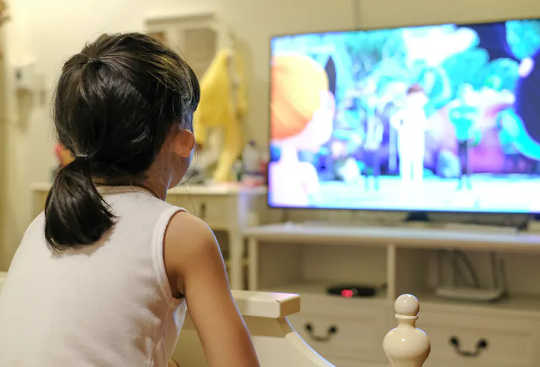
Understanding the powerful influence that media has on preschoolers and kindergarteners is important because this is a crucial developmental period for socio-emotional development and is precisely the time when fears about pain (especially needles) develop.

We are now a society at a distance. But the label used to describe these measures – “social distancing” – is a misnomer. While we must be physically distant, it’s crucial we maintain, or even increase, social contact with others during this unprecedented time.

The festive period heightens the sort of inner conflicts that have characterised 2020. On one hand, it is socially responsible to keep our distance. On the other, it feels wrong to leave someone alone at Christmas.

Touch has profound benefits for human beings. But over the last few decades, people have become increasingly cautious about socially touching others for a range of reasons.

No more hugs? Rawpixel.com/shutterstock
Touch has profound benefits for human beings. But over the last few decades, people have become increasingly cautious about socially touching others for a range of reasons. With the novel coronavirus spreading, this is bound to get worse. The coronavirus could very well have long-term implications for how hands-on we are – reinforcing already existing perceptions that touch should be avoided.
Why is touch so important? It helps us share how we feel about others, enhancing our verbal communication. A touch on the arm when comforting someone, for example, is often what shows that we really care. People benefit from physical touch throughout their lifespan, and there is a large body of evidence showing that it has the ability to affect both short and long-term wellbeing. For babies, it is even crucial for healthy brain development.
The emotional impact of social touch is ingrained in our biology. There is evidence that it triggers the release of oxytocin, a hormone that decreases responses to stress. In fact, touch has been shown to cushion stress levels in humans.
We know that a simple touch by a nurse prior to surgery can reduce stress levels in patients. It can also reduce feelings of social exclusion and even increase food intake among elderly people living in a nursing home. So given how essential social touch is to people’s wellbeing, it is important to ensure that it is a part of everyday life.
Decline in social touch
The last few decades has seen a decrease in social touch. Partly, this is down to the fact that we are living in a technology-focused, socially disconnected world, where people are more likely to communicate virtually rather than through meeting in person. This means that we are touching each other much less than we used to.
But the decline in touch is primarily due to a fear that it may result in an accusation of inappropriate touching. Such fear has been moulded by society as people are frequently hearing stories of inappropriate behaviour. People therefore rather resist touching others than risk having a social touch misinterpreted. The message is simple: avoid hugging a work colleague who is upset and don’t pat someone on the back for a job well done.
At the same time, the fear of accusations of child abuse has been disproportionate to the number of actual occurrences. This has seen professionals developing distorted thinking. Teachers often avoid being alone with children, and don’t touch pupils in a natural and affectionate way.
The impact of coronavirus
With the novel coronavirus, people have yet another reason to be fearful of touching others, as it means approaching people who potentially may be carriers. While we should remain careful with touching during this serious outbreak, we have to make an effort not to let it get out of control. After all, a lot of people suffer from high levels of anxiety about the virus, and touch is a way to reduce it.

It won’t last forever. eldar nurkovic/Shutterstock
The longer this goes on, the more likely that an association will be formed between social touch and a sense of negativity. People may eventually forget all about the virus, but still be wary of social touch without knowing why. This is because negative associations often create more readily available memories for people than positive associations.
So while it is not advisable to carry on touching people as usual during the outbreak, especially not people who are old or have underlying health conditions, physical contact with loved ones can still continue, as long as we take precautions.
More broadly, the key is to be aware that negative life events such as this epidemic could impact on social touch in the long run in an undesirable way. Bringing this to the forefront of our minds can counterbalance what may otherwise generate negative memories about touch.
Once the outbreak is over, one vital challenge will be to reset our thinking about touch, keeping in mind its importance. After all, a hug may be just what we need to move on from the traumatic experience of the coronavirus.
About the Author
Cathrine Jansson-Boyd, Reader in Consumer Psychology, Anglia Ruskin University
This article is excerpted from a longer article from The Conversation under a Creative Commons license. Read the original article.

Related Books:
The Five Love Languages: The Secret to Love That Lasts
by Gary Chapman
This book explores the concept of "love languages," or the ways in which individuals give and receive love, and offers advice for building strong relationships based on mutual understanding and respect.
Click for more info or to order
The Seven Principles for Making Marriage Work: A Practical Guide from the Country's Foremost Relationship Expert
by John M. Gottman and Nan Silver
The authors, leading relationship experts, offer advice for building a successful marriage based on research and practice, including tips for communication, conflict resolution, and emotional connection.
Click for more info or to order
Come as You Are: The Surprising New Science that Will Transform Your Sex Life
by Emily Nagoski
This book explores the science of sexual desire and offers insights and strategies for enhancing sexual pleasure and connection in relationships.
Click for more info or to order
Attached: The New Science of Adult Attachment and How It Can Help You Find—and Keep—Love
by Amir Levine and Rachel Heller
This book explores the science of adult attachment and offers insights and strategies for building healthy and fulfilling relationships.
Click for more info or to order
The Relationship Cure: A 5 Step Guide to Strengthening Your Marriage, Family, and Friendships
by John M. Gottman
The author, a leading relationship expert, offers a 5-step guide for building stronger and more meaningful relationships with loved ones, based on principles of emotional connection and empathy.
















